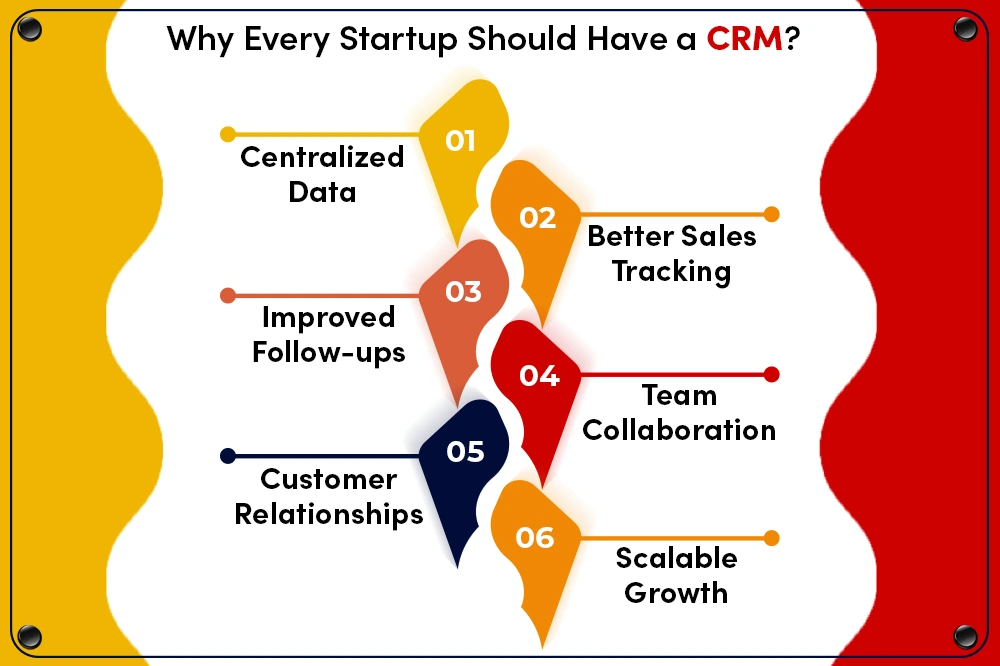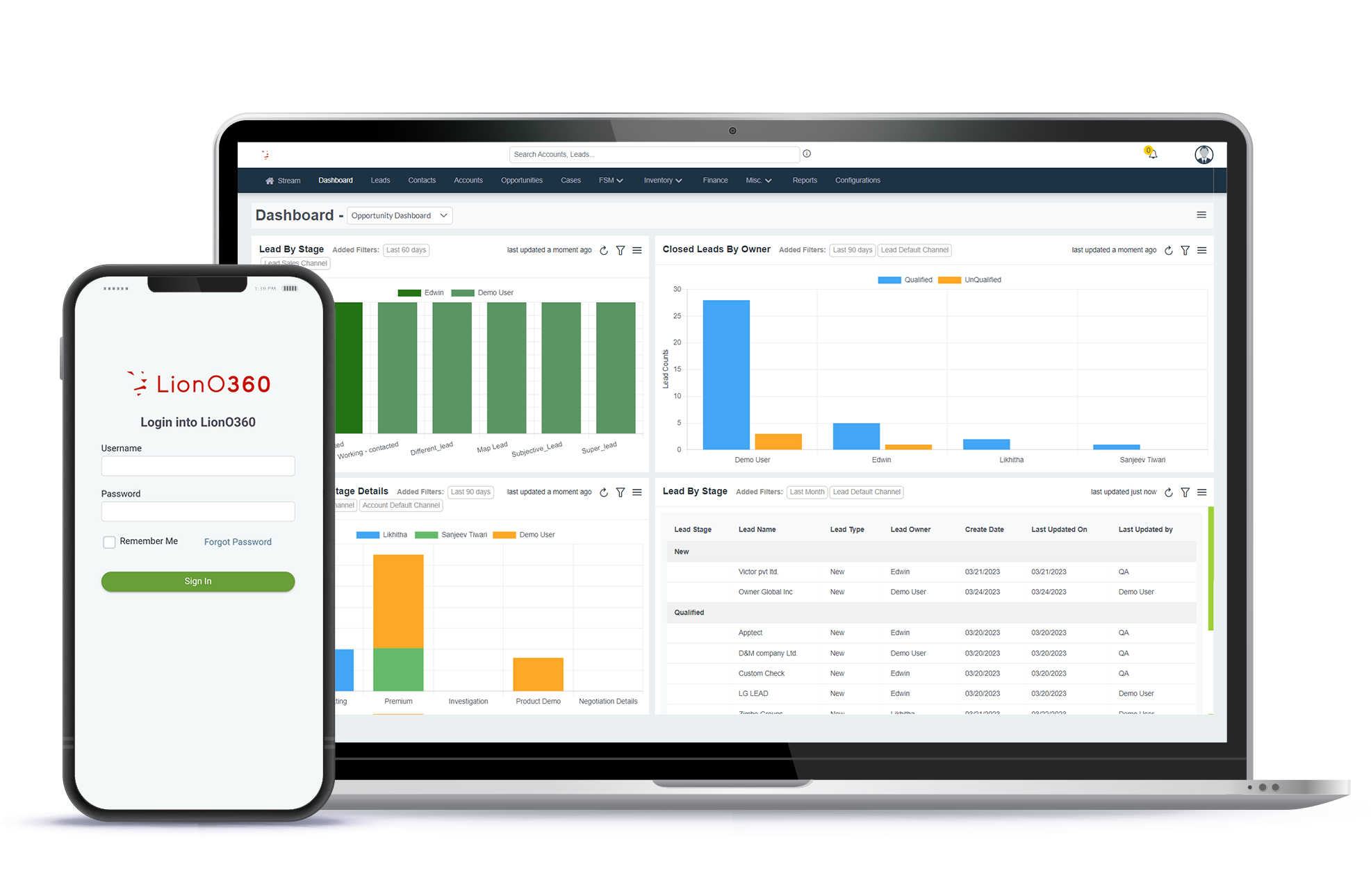
Startups are becoming the highest career choice among the young generations. The passion for serving nations with domestic products is popular these days. With the highest responsibility of running a business, problem comes. Then, only a proper system setup can help. Similar to CRM, it helps not only with customers but also with sales.
According to recent data, 91% of companies with 11+ employees use CRM tools, highlighting their importance in business.
This blog is perfect for those who are thinking of setting up a new startup or are already running one. Let's find out more in detail.
What is CRM?
The first question is: What is CRM? What does it mean, and how does it work for startups? Let's understand the basic concept. A management system that helps a company to maintain a healthy relationship with its genuine clients. Also, offer support whenever and wherever they need it.
A CRM (Customer Relationship Management) tool helps companies organize customer data, track interactions, manage sales pipelines, and strengthen relationships. It is not only about storing names, phone numbers, or email addresses.
A modern CRM enables companies to track conversations, monitor leads, manage sales pipelines, and gain a deeper understanding of customer needs and preferences. In simple words, CRM acts as a single source of truth for all customer-related information.
Why Do Startups Need a CRM?

Startups, which often have limited teams and resources, CRM provides a structured way to grow without losing control over customer relationships. When a startup begins, managing customers through spreadsheets, emails, or phone notes might seem enough. But as soon as the customer base grows, things quickly become difficult to track. Leads may slip through the cracks, miss follow-ups, and customers may feel ignored.
Startups need a CRM for several reasons, which make CRM essential:
- A CRM stores all customer information in one place, so teams do not waste time searching for details.
- By tracking leads and their journey, startups can ensure timely follow-ups and higher conversions.
- With shared access, sales and support teams can work together without confusion.
- A CRM helps startups respond faster and personalize interactions, which leads to stronger trust and loyalty.
Benefits of Having CRM
The right CRM solution does more than manage contacts. It transforms the way a startup operates. Some significant benefits are:
- Startups often run with lean teams. A CRM provides clarity on who is handling which customer, what stage a deal is in, and what actions are pending.
- Automation of tasks such as sending reminders, follow-up emails, or scheduling meetings saves time and allows teams to focus on closing deals.
- With CRM analytics, startups can identify buying patterns, customer preferences, and areas of improvement.
- Faster response times, higher conversion rates, and repeat business from satisfied customers contribute directly to revenue.
- CRM grows with the startup. It adapts to new products, markets, and larger teams without disrupting workflows.
Essential Insights for Startups Adopting CRM
Before adopting CRM, startups should understand a few essential insights that will help them make the most of it:
CRM is Not Only for Big Companies
Many startups believe that CRM is intended for large enterprises. Adopting CRM early helps build strong systems from the start.
It is about Strategy, not just Software
A CRM works best when combined with a clear customer strategy. Startups must decide how they want to engage with customers and align the CRM to that vision.
Integration Saves Effort
A CRM that connects with email, messaging, or field service management tools ensures smooth operations without duplication of work.
These insights can help startups prepare for a successful CRM journey.
How to Choose CRM for Startups?
The CRM market is saturated with options, making it challenging to select the right one. Startups should focus on a few key factors:
Ease of use
A CRM should be simple and user-friendly. If it is too complicated, team members may avoid using it.
Mobile access
Startups often have remote teams or field staff. A mobile-first CRM ensures that work continues smoothly from anywhere.
Customization
Every startup has unique processes. The CRM should allow custom fields, workflows, and reports to match business needs.
Customer Expectations
Customers today expect fast and reliable service. Delays or poor communication can damage trust and lead to negative feedback.
FSM solutions that offer live tracking, automated updates, and feedback options help keep customers informed and satisfied. Transparency builds trust and improves service ratings.
How LionO360 Empowers Startups with a Complete Solution

Among the many CRM options available, LionO360 stands out as a complete solution for startups. It is not just a CRM but a platform that combines customer management, field service management, and inventory management in one place.
Here is why LionO360 is an ideal choice for startups:
- Instead of juggling multiple tools, startups can manage sales, service, and inventory in one system.
- Teams can access customer data, update tasks, and track progress at any time, from anywhere.
- For startups with field teams, LionO360 makes scheduling, dispatching, and monitoring efficient and straightforward.
- A unique feature that allows startups to manage stock and service parts alongside customer data.
- Startups can set up the system to match their processes without being forced into rigid structures.
- As the startup expands, LionO360 grows with it, ensuring smooth operations at every stage.
Frequently Asked Questions
1. What is the primary purpose of a CRM for startups?
A CRM helps startups organize customer data, track leads, and manage interactions efficiently. Its primary purpose is to improve sales, customer satisfaction, and team collaboration.
2. When should a startup start using CRM?
A startup should adopt a CRM as soon as customer interactions exceed what can be managed through spreadsheets or email. Early adoption prevents confusion and ensures missed opportunities are avoided.
3. What are the benefits of CRM in business growth?
CRM helps with better organization, faster lead conversions, improved customer service, and stronger insights. All these directly contribute to higher revenue and growth.
4. How can a startup choose the best CRM?
Startups should select a CRM based on its ease of use, mobile accessibility, cost, scalability, and compatibility with existing tools and systems. A simple and adaptable system is most effective.
5. Why is LionO360 suitable for startups?
LionO360 combines CRM, field service management, and inventory management in a single platform. It is mobile-friendly, scalable, and designed to simplify startup operations.













